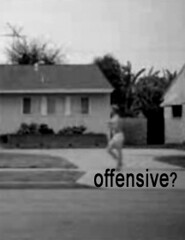
"Just a heads up: Any stuff beyond the Skittles.com page is actually another site and not in our control. This panel may be hovering over the page, but SKITTLES® isn't responsible for what other people post and say on these sites." — Skittles
While one of my favorite people on Twitter, David Armano, continues to consider the sociological viewpoint of Skittles' decision to replace its homepage with social media sites such as YouTube, Twitter, Facebook, and Wikipedia; I keep turning my attention to the individual cognitive implications that the change may have on the brand.
Huh?
There is ample evidence to suggest that while people initially encode verbatim information (statements and pictures), they tend to rapidly forget this information and retain only abstract meanings over a relatively short period of time. One experiment that comes to mind is that of Michael Posner, the editor of numerous cognitive and neuroscience compilations and an eminent researcher in the field of attention, in 1969.
His study demonstrated memory for an initial stimulus is rapidly transformed into an abstract code. In other words, when applied to Skittles, we might conclude that people will not remember exactly what is said about Skittles, but they will remember a general impression about Skittles. And those impressions are now left up to the people talking about the site.
Adding Up Impressions.
In effect, Skittles has largely abandoned brand management, enough so that the majority of the brand is being managed by social media participants. In the case of the Twitter page, what they say is captured on the site, and creates impressions.
Currently, two things are happening. First, the initial buzz surrounding the launch is quickly dissipating, especially around people with the greatest reach (large audience). Second, most people are forgetting the exact messages they saw related to Skittles, leaving them with abstract ideas.
What are those ideas? Everything from people who want to prove the campaign works by buying some to people who say they are poison because they contain trans fat. In fact, Skittles far outweighs most chewy fruit candy in terms of calories and sugar (depending on the favor).
However, what we know from cognitive psychology is that most people will not remember the specifics after a few days. What they will remember is much more basic and abstract. Or, simply put, they will have a positive or negative impression.
After conducting a brief but relevant scan of the conversations around Skittles, we estimate that approximately 66 percent of the participating public will be left with a positive impression and 44 percent will be left with a negative impression. Even then, these impressions, positive or negative, will not necessarily convert into sales. However, they seem to be doing an excellent in converting neutral candy buyers into anti-Skittles consumers, a virtual crisis communication in the making.
For a candy brand, there is no other way to say it so I'll just say it. IT SUCKS. Perhaps worse, Skittles has created an age barrier, which Kathy E. Gill appropriately described as considered an attempt to "try too hard to be 'cool' and demonstrating cluelessness in the process."
What's Going Wrong?
Some people are failing to interpret what it means to "give up control" of a brand online. Giving up control doesn't have to mean allowing other people to define you, your product, or your company. And companies would do well to remember it.
"Giving up control" means allowing people to decide if you have made good on your brand promise. And if you have not, thereby damaging the relationship between the company and the consumer, it encourages the public to let you know so you can either adjust the product to meet that expectation or adjust the message to lower the expectation.
Without management or guidance, companies following the Skittles model risk fracturing their brand because the expectation is no longer in the hands of Skittles, but consumers, some of whom now have a negative impression despite never even trying the product.
Worse, when the initial sales figures come in, Skittles might accidently take a sales spike to mean the experiment works when, in fact, the real test of time will be sustained sales. Unfortunately, if the campaign eventually experiences diminished sustained sales, it might be too late to turn back. It might even be too late already.
Can Skittles Be Saved?
I cannot stress enough that, despite the initial indicators, it's too soon to tell. However, there is no denying that Skittles has painted itself into a box. There is no easy way to exit a forceful entrance into social media. And, the impressions that a brand makes when it exits social media or are forced to exit social media much like the shutdown of the Burger King defriending campaign, are never good.
Already, Skittles faced considerable stiff criticism for removing the Twitter page from its home page. If they decide to exit completely, any brand damage might tip to severe. The candy will always be associated with the campaign that didn't work.
Don't get me wrong. I am all for experimentation. In virtually every class I teach, I tell students that they cannot be afraid to fail if they hope to succeed in advertising, communication, or public relations. However, slow entrances into social media are usually more sustainable than flash-in-the-pan campaigns. And, there is a difference between being fearless and foolhardy.
In closing, I might mention that while some people might be praising the sociological viewpoint of the Skittles campaign, such thinking neglects one very important consideration: Branding occurs at the individual level.
Specifically, Twitter can be studied as a sociology perspective, but a brand on Twitter operates on the individual cognitive scale. So while time will tell whether all that ends will end well for Skittles, it's already leaning toward fail after a few jumped too soon to praise what doesn't amount to much more than push marketing.
Other Views From Around The Web:
Charlene Li: Skittles Bravely Lets Social Media Take Over The Homepage.
Stan Schroeder: Skittles Swaps Homepage from Twitter Search to Facebook Page.
Laurie Sullivan: Skittles Settles On Wikipedia For Brand's Home Page.
Joe Hall: Skittles’ Social Media Campaign: FTW or Epic Fail?
Michelle Kostya: Flavour Of The Week.















